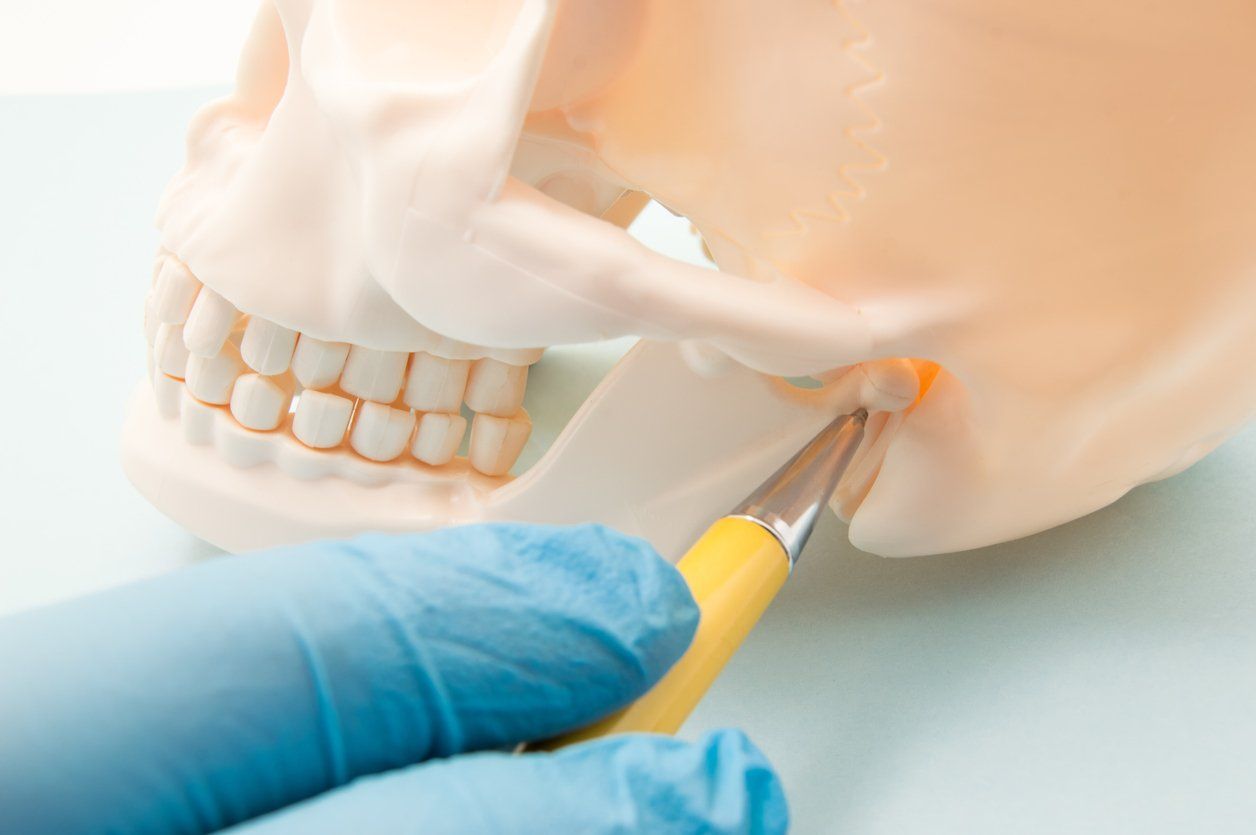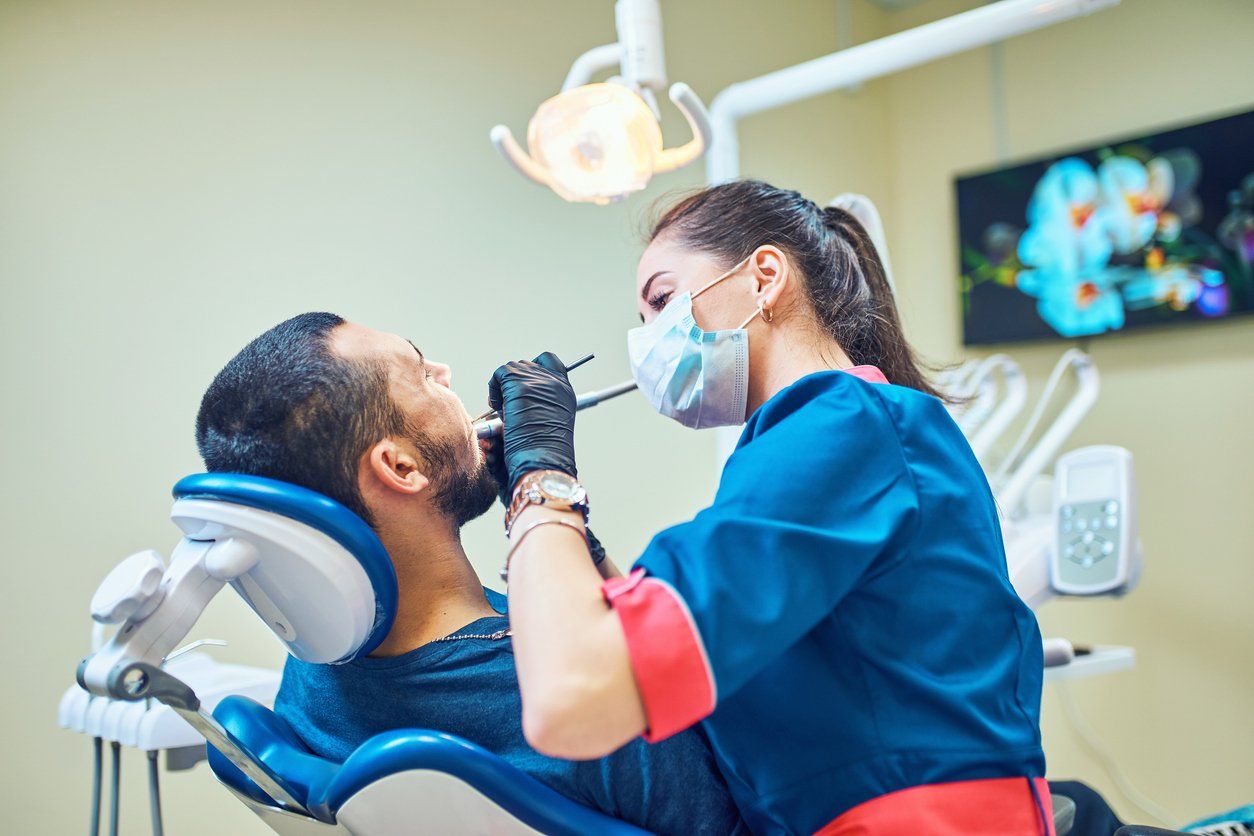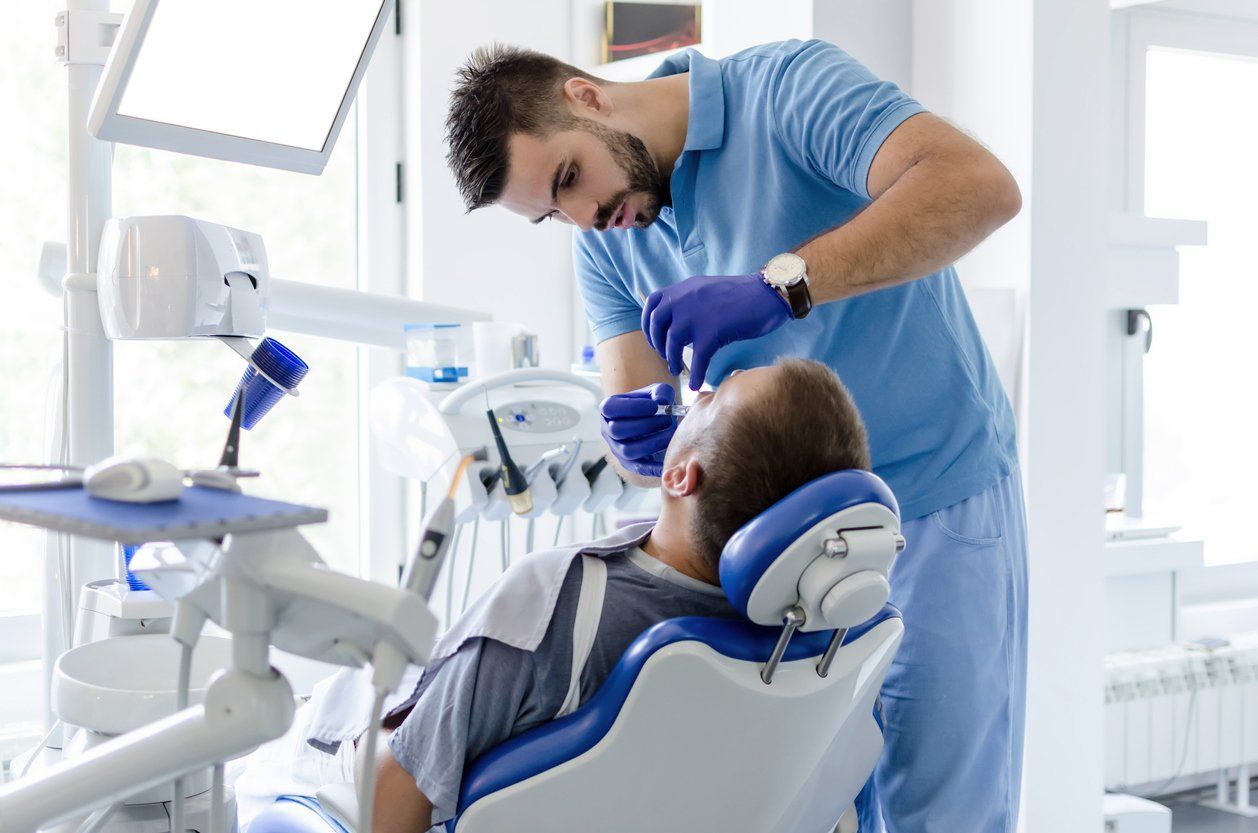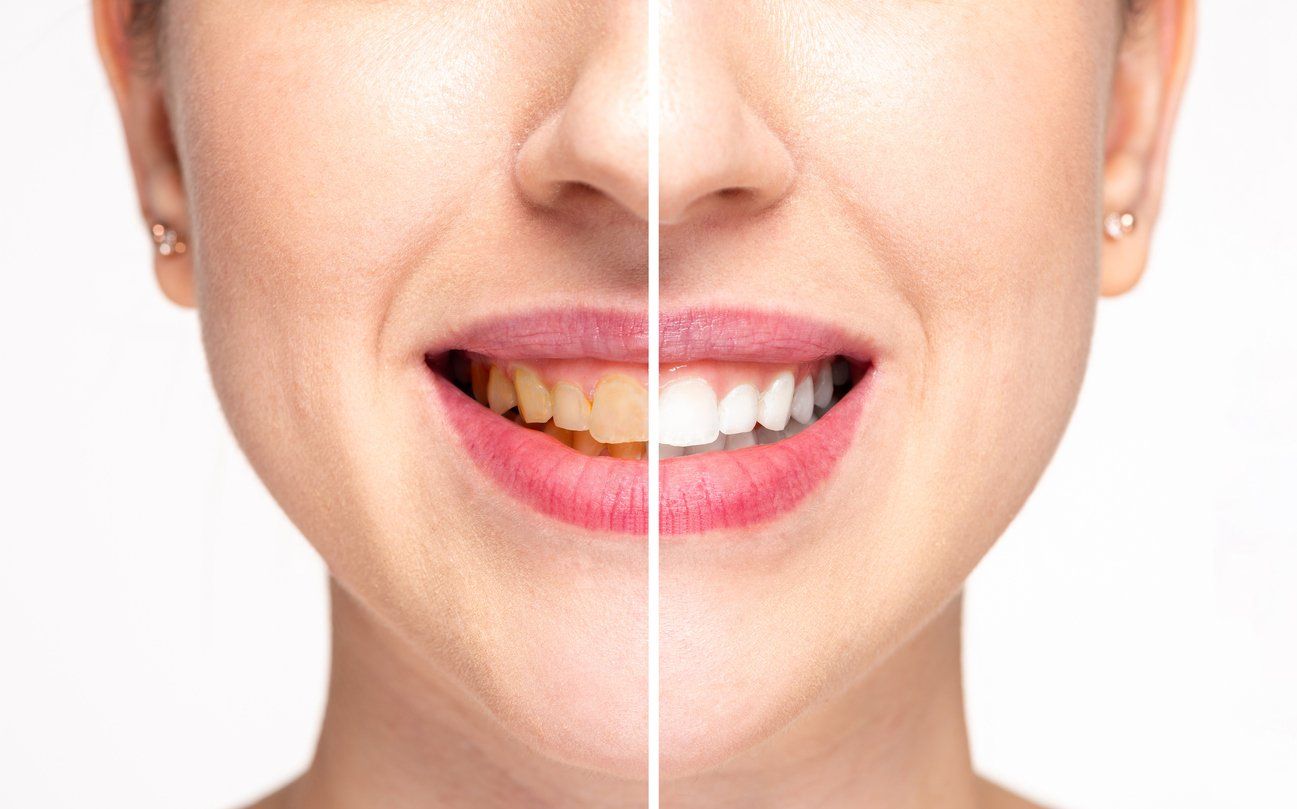TMJ and Bruxism: Causes, Symptoms, and Treatments
Temporomandibular joint disorder, more commonly known as TMJ, is a type of jaw pain that involves the joint that connects the lower mouth to the skull. TMJ can have a variety of causes, such as bruxism or injuries, and the jaw pain and other symptoms of TMJ can be significant. At Marie Simon Dentistry, we care about helping our clients to minimize jaw pain and increase their overall oral health.
Symptoms of TMJ

TMJ can vary significantly from person to person. Some common symptomsof TMJ that may be present include:
- Jaw, ear, or other facial pain
- Difficulty chewing
- Jaw locking, which makes opening or closing the mouth difficult
Causes of TMJ
TMJ is a broad term that encompasses a variety of types of jaw problems. Some common causesof TMJ include:
- Arthritis
- Jaw injuries
- Problems with tooth or jaw alignment
- Grinding or clenching teeth ( bruxism)
While these causes cover the majority of TMJ cases, TMJ can also occur without a clear cause.
Effects of TMJ on Teeth and Mouth
TMJ can have a wide variety of effects on the jaws, teeth, and other parts of the mouth. Jaw pain is the most common effect of TMJ, and it can also cause:
- Bite problems
- Muscle problems, particularly in the jaw
- Worn enamel, as a result of bruxism
Treating TMJ
Because TMJ is a broad term that can consist of minimal to severe jaw issues, common treatments can range from minimal lifestyle changes to significant dental interventions. Some of the most effective ways to minimize TMJ pain include:
- Eating softer foods/avoiding hard foods that are difficult to chew
- Avoiding chewing gum
- Avoiding biting nails
- Heat packs
- Exercising jaw muscles
- Medications
- Night guards to minimize grinding or clenching teeth
- Orthodontic treatment or surgery
Learn More About TMJ
At Marie Simon Dentistry, we care about helping our clients avoid jaw pain and other oral health problems caused by TMJ. Contact us todayto learn more about TMJ or to schedule an appointment!










